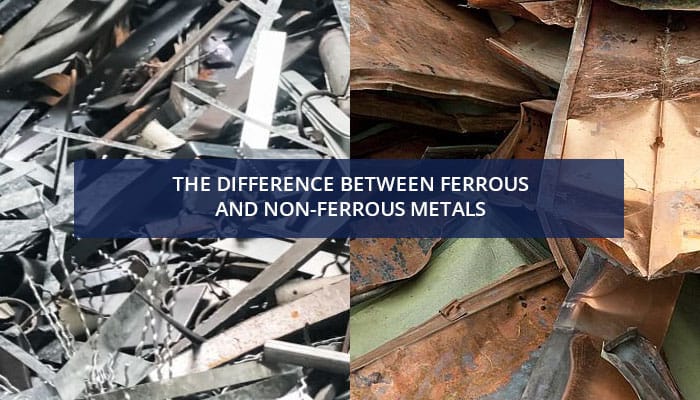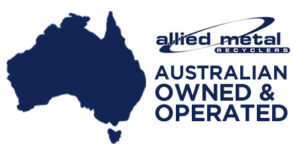In the world of metalwork, ferrous and non-ferrous metals are terms you often hear; but do you know what they mean? What is the difference between these two types of metals? It’s time to learn more about ferrous and non-ferrous metals so that you can make more informed decisions about your projects.
What are Ferrous Metals?
Ferrous metals contain iron and have magnetic properties. They usually have a grey colour and dull finish. These metals are strong, durable, and resistant to corrosion, making them ideal for construction, manufacturing, shipping containers, tanks, tools, etc.
Ferrous metals include all forms of iron and steel. Small amounts of other elements can be added to iron and steel to achieve the desired property. Copper, for example, is added to steel to improve corrosion resistance. Adding nickel to steel increases its strength and toughness; a property of stainless steel.
Alloy steel, carbon steel, cast iron, and wrought iron are some of the most common ferrous metals. These metals are highly valued due to their tensile strength and durability. Carbon steel, also known as structural steel, is used in some of the tallest skyscrapers and longest bridges. Shipping containers, industrial piping, automobiles, railroad tracks, plus various commercial and household tools also contain ferrous metals.
Ferrous metals have a high carbon content, making them prone to rust when exposed to moisture. There are two exceptions to this rule: wrought iron is rust-resistant due to its purity, and stainless steel is rust-resistant due to the presence of chromium.
Because most ferrous metals are magnetic, they are ideal for motor and electrical applications. Keep in mind, it’s the ferrous metals used in your refrigerator door that allows you to stick your shopping list there with a magnet!
What are Non-Ferrous Metals?
Non-ferrous metals do not contain any iron or other ferric elements. However, they may contain copper, nickel, aluminium, zinc or other alloys instead. Non-ferrous metals tend to be lighter than their ferrous counterparts and less durable. They are often used in applications where strength is not as important as conducting electricity or being non-magnetic (e.g., electrical wiring). Copper is an example of a non-ferrous metal.
Aluminium, copper, lead, zinc, and tin are examples of non-ferrous metals, as are precious metals such as gold and silver. Their main advantage over ferrous materials is that they are more malleable. They also have no iron content, which makes them more resistant to rust and corrosion, and ideal for gutters, liquid pipes, roofing, and outdoor signs. Finally, they are non-magnetic and essential for many electronic and wiring applications.
It’s crucial to remember that some alloys can be made from both ferric and non-ferric elements. For example, bronze is an alloy of copper and tin with properties of both materials.
Tips When Working with Ferrous and Non-Ferrous Metals
When working with either type of metal, it’s essential to use the correct tools for the job. For instance, when drilling into steel, it’s vital to use bits designed for steel rather than those designed for softer materials such as wood or plastic, as this will ensure you get the best result.
When welding different types of metal together, it’s also critical to use suitable filler material. This will help to ensure a strong bond between the two pieces, while minimising any potential damage due to heat or chemical reactions between different elements in the alloy.
Ferrous and Non-Ferrous Metal Recycling
In the world of recycling, both ferrous and non ferrous scrap metal are in high demand. This is due to the significant amount of energy saved by recycling versus mining fresh metal ore. Recycling aluminium, for example, uses only 5% of the energy required to manufacture virgin aluminium. So, when businesses choose to use recycled metals instead of brand-new materials, they are not only saving money and resources, but also lessening their environmental impact.
Want to learn more about recycling ferrous and non-ferrous metals? Contact our team today if you’re looking for a metal recycling service in Perth.



